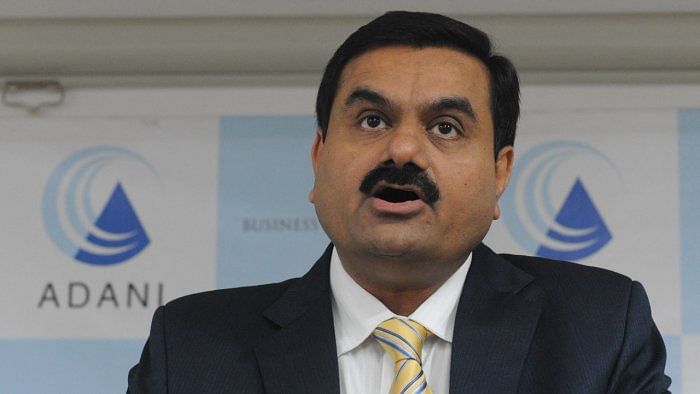
By Edward Ludlow and Katherine Burton
Over the past few years, Nathan Anderson has made a name with analysis that sends stocks sinking.
Now the activist short seller behind Hindenburg Research is going after his biggest game yet — what Hindenburg is calling, with characteristic chutzpah, “The Largest Con in Corporate History.’’
His target: Indian industrialist Gautam Adani, a figure even richer than Bill Gates or Warren Buffett, with a net worth of $113.4 billion, according to the Bloomberg Billionaires Index.
Hindenburg on Tuesday leveled a series of extraordinary allegations about the sprawling Adani Group conglomerate — the result, it said, of a two-year investigation into what it’s characterizing as a brazen scheme of stock manipulation and accounting fraud dating back decades.
The report, which the Adani Group dismissed as “a malicious combination of selective misinformation and stale, baseless and discredited allegations,” promptly wiped $12 billion of market value. Hindenburg hopes that’s just the beginning.
It’s a remarkable turn for Anderson, who first got Wall Street’s attention with takedowns of electric-vehicle makers Nikola Corp. and Lordstown Motors Corp. Little Hindenburg has never swung at a company as big and powerful as Adani Group. (Anderson briefly bet against Twitter Inc. as Elon Musk was buying the company and then turned bullish on the stock last July.)
And so, the question is whether other investors will heed Hindenburg’s warnings about Adani, whose dizzying wealth cuts across India’s economic and political life.
It’s difficult to overstate just how lopsided this fight is. Gautam Adani has spent four decades building a business empire spanning energy, agribusiness, real estate and defense, among others. He’s considered to have a close relationship with India’s Prime Minister Narendra Modi, with his ambitious goals closely aligned with the government’s priorities.
Anderson’s New York-based firm — technically a research and trading outfit, not a hedge fund with outside investors — is less than five years old and wagers its own money in the markets. Even in Manhattan’s financial circles, he’s hardly a big name.
And yet Anderson has managed to make a mark lately. Hindenburg, named after the German airship that blew up in 1937, has targeted about 30 companies since 2020. On average, their stocks fell about 15 per cent the next day, and were down 26 per cent six months later, according to calculations by Bloomberg News.
Anderson declined to comment for this story. But Hindenburg is bracing for a blow-by-blow response from the Adani Group.
Short sellers — and the controversies that often surround them — have been around for as long as there have been stocks. The Dutch briefly outlawed the practice in the 1600s after traders shorted the Dutch East India Company, purportedly the first company in the world to issue shares. Lately, US authorities have looked into whether some shorts have occasionally colluded to attack companies. Hindenburg hasn’t been accused of wrongdoing, but some of its peers have been sounding the retreat.
Hindenburg’s MO is simple. Anderson and his team dig into companies and look for malfeasance. One high-profile example: Electric-vehicle maker Nikola, which Hindenburg called an “ocean of lies.’’ Last October, Nikola founder Trevor Milton was convicted of defrauding investors.
For all the noise that Hindenburg makes, Anderson himself keeps a low profile.
He grew up in a small town in Connecticut and earned a business degree from the University of Connecticut.
During college, he lived for a time in Israel, working as a paramedic while taking classes at Hebrew University. He later worked for a financial analytics company before taking a job checking out potential deals for the investment firms of wealthy families. His passion, he’s said, is to “find scams.’’
Early on, he spent hours looking into potential Ponzi schemes and occasionally teamed up with forensic accountant Harry Markopolos, who famously tried to warn federal authorities about Bernard Madoff. Anderson has called Markopolos a role model.
Around 2014, Anderson started filing whistleblower complaints with US authorities in hopes of collecting bounties for unearthing fraud.
One of his first big gets: Looking into hedge fund Platinum Partners with Markopolos. Seven executives were subsequently charged with fraud.
Today Hindenburg employs about 10 people, a mix of former journalists and analysts. Sometimes, hedge funds have joined in on its trades.
Even if Adani beats back Hindenburg, and the odds are squarely in Adani’s favor, Anderson has no shortage of work left to do.
“There’s still plenty of fraud out there,” Anderson told the New York Times last October. “If there’s ever a time that I feel that most of the corporate fraud in America has been eliminated, then I’ll probably announce that I’ll go grow tomatoes, or something.”